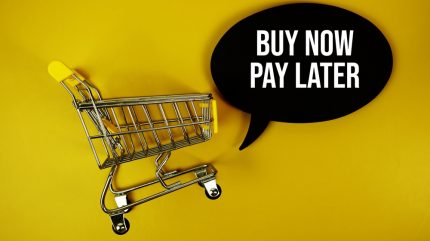
As rising prices squeeze household budgets on both sides of the Atlantic, major retailers in the UK and US are turning to Buy Now Pay Later (BNPL) services like Klarna, Affirm, PayPal and Afterpay to offer more flexible payment options.
These services allow shoppers to split purchases into smaller instalments, often interest-free, appealing to consumers looking to manage spending without resorting to credit cards.

Discover B2B Marketing That Performs
Combine business intelligence and editorial excellence to reach engaged professionals across 36 leading media platforms.
In the UK, high street brands such as John Lewis and ASDA have integrated BNPL at checkout.
In the US, companies like Walmart and Amazon have partnered with BNPL providers to help customers spread the cost of everyday purchases and big-ticket items.
Retailers report rising sales and bigger basket sizes
Retailers on both sides of the Atlantic have reported increased online conversion rates and larger order values since adopting BNPL. In the UK, John Lewis now offers Klarna as a payment method on its website, allowing customers to pay in three instalments.
The retailer says this has helped boost sales of furniture and homeware, categories where customers typically spend more.

US Tariffs are shifting - will you react or anticipate?
Don’t let policy changes catch you off guard. Stay proactive with real-time data and expert analysis.
By GlobalDataIn the US, Affirm is widely used by major retailers including Walmart and Peloton. Walmart enables BNPL at checkout through Affirm for purchases over $144, including electronics, home goods and sports equipment.
By offering payment flexibility, the retailer has made higher-value purchases more accessible to cash-strapped consumers.
Retailers receive full payment upfront from BNPL providers, while the customer repays the loan in instalments. This setup protects businesses from payment default while offering customers a way to manage costs over time.
BNPL attracts younger shoppers and non-traditional borrowers
BNPL has become especially popular among younger shoppers, many of whom prefer avoiding traditional credit.
In the UK, fashion brands like ASOS, H&M and JD Sports report strong uptake among Gen Z customers, who use Klarna and Clearpay (the UK version of Afterpay) to budget purchases.
Similarly, in the US, Klarna and Afterpay have grown rapidly among millennial and Gen Z users, who use these services for everything from clothing to tech. Amazon introduced BNPL through Affirm in 2021, offering interest-free payments on a range of goods, from laptops to kitchen appliances.
Retailers benefit from increased reach into this demographic, often using BNPL firms’ marketing platforms to target shoppers directly.
However, customer approval rates and loan eligibility vary, raising concerns about transparency and potential exclusion of those with weaker credit histories.
Regulatory scrutiny and debt concerns grow
While BNPL offers convenience and budgeting support, regulators and consumer advocates in both countries have warned of the risks. In the UK, the Financial Conduct Authority is planning stricter oversight of the sector after concerns about debt accumulation and lack of affordability checks.
In the US, the Consumer Financial Protection Bureau has also launched investigations into BNPL providers, citing the potential for consumers to take on multiple loans across platforms without a clear understanding of repayment obligations.
Retailers using BNPL must now navigate a shifting regulatory landscape. They are expected to ensure transparency around terms and conditions, and to help customers understand the consequences of missed payments.
As inflation continues to impact household finances, BNPL remains a double-edged sword: a useful tool for short-term flexibility, but one that may pose longer-term financial risks if not used responsibly.





